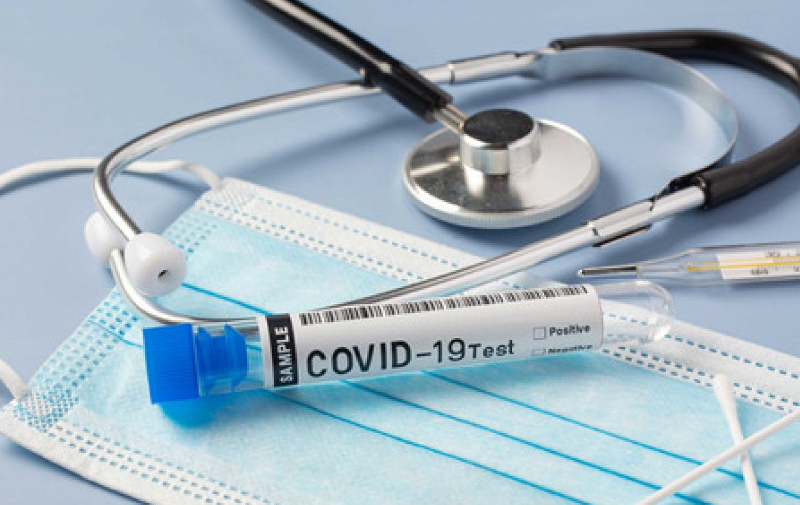Covid 19 has put on brakes on Earth that nobody ever even imagined it would. Things have started to look up with three vaccines coming out in the U.S. alone. But still, every single one of us knows somebody who has fallen prey to this deadly virus, even after getting vaccinated. Covid antibody blood tests come in handy in this domain: they detect the presence of infection-fighting proteins that linger in the blood after an individual's immune system wins the battle against Covid. However, some controversy surrounds this test: does a positive antibody test translate to immunity against COVID-19? Let us find out.
What is an Antibody Test?
Just as the name insinuates, an antibody test detects the presence or absence of antibodies in the bloodstream. Antibodies are infection-resisting proteins produced by our immune system in response to infection-causing antigens. They attach to alien substances in the body, thereby eliminating them. Our body generates antibodies when fighting a COVID-19 infection, just as it does when dealing with a flu shot or any other vaccine. These antibodies provide immunity from the COVID-19 virus, and an antibody test detects whether or not an individual possesses them. It is essential to note that the detection of antibodies in the blood does not mean the presence of a virus; it simply indicates that your body developed resistance to it. Antibody tests are also known as serology tests.
How does a Covid Antibody Test work?
Covid antibody tests are carried out by taking a sample of blood from an individual, most commonly from the veins on the inner side of the elbow. The blood sample is then sent for experimental analysis to a technician, who looks for either one or both kinds of antibodies generated in response to SARS-CoV-2, the virus which causes COVID-19. These two antibodies are
-
IgM antibodies, and
-
IgG antibodies.
IgM antibodies usually appear early in case of an infection, whereas IgG antibodies typically appear at a later stage. IgG antibodies are the ones that linger in our blood circulation long after an infection subsides – they appear about 14 days after the appearance of symptoms of COVID-19 in most individuals. However, the new variants of COVID-19 are yet to be tested, and it cannot be said for sure how long their antibodies remain in the bloodstream.
Is a coronavirus test and an antibody test the same?
No, a coronavirus test is not the same as a COVID-19 antibody test. The coronavirus test is diagnostic in nature and detects the signs of active virus: it considers whether or not an individual has the active SARS-CoV-2 in his body at the time of testing. An antibody test, in contrast, detects the body's response to the virus that an individual may have been exposed to at any time in the past or may still be in contagious form. A coronavirus test is much faster and uncomplicated than an antibody test.
Who should get an antibody test?
Antibody tests for COVID-19 are, in no way, diagnostic. They may not indicate if an individual is currently suffering from a Covid infection as it takes about 1 to 3 weeks for the body to generate antibodies after infection. However, you should get an antibody test if you intend on determining if you have been infected with the SARS-CoV-2 virus or have recovered from a COVID infection. Researchers at this point do not have sufficient scientific evidence to prove that the presence of antibodies means immunity or protection from any future COVID-19 conditions.
What is the need for covid-19 antibody testing?
A great deal of information pertaining to the signs, symptoms, diagnosis, treatment, and recovery process of the COVID-19 infection is yet to be uncovered. An individual can have SARS-CoV-2 and not be aware of it, as not all individuals who have been exposed to this virus exhibit symptoms. Science has high hopes for antibody testing, as experts believe that it would provide a clearer picture of how common the virus is, who has had it in the past or has it presently, and which severe symptoms it can have. Apart from this, the presence or absence of antibodies and their subsequent impact on an individual's life can aid in comprehending the recovery process, how much immunity antibodies render, and even if they should be developed scientifically to be introduced to patients.
Where can you get an antibody test and how much does it cost?
Although several antibody tests are presently in the process of development, several others are available to detect antibodies to SARS-CoV-2. Before choosing a place to get tested, ensure that the process has FDA Emergency Use Authorization. An antibody test usually costs anywhere between $140-150 dollars, but the price goes up to about $480-490 dollars if it includes testing for Influenza and Respiratory Syncytial Virus as well.











